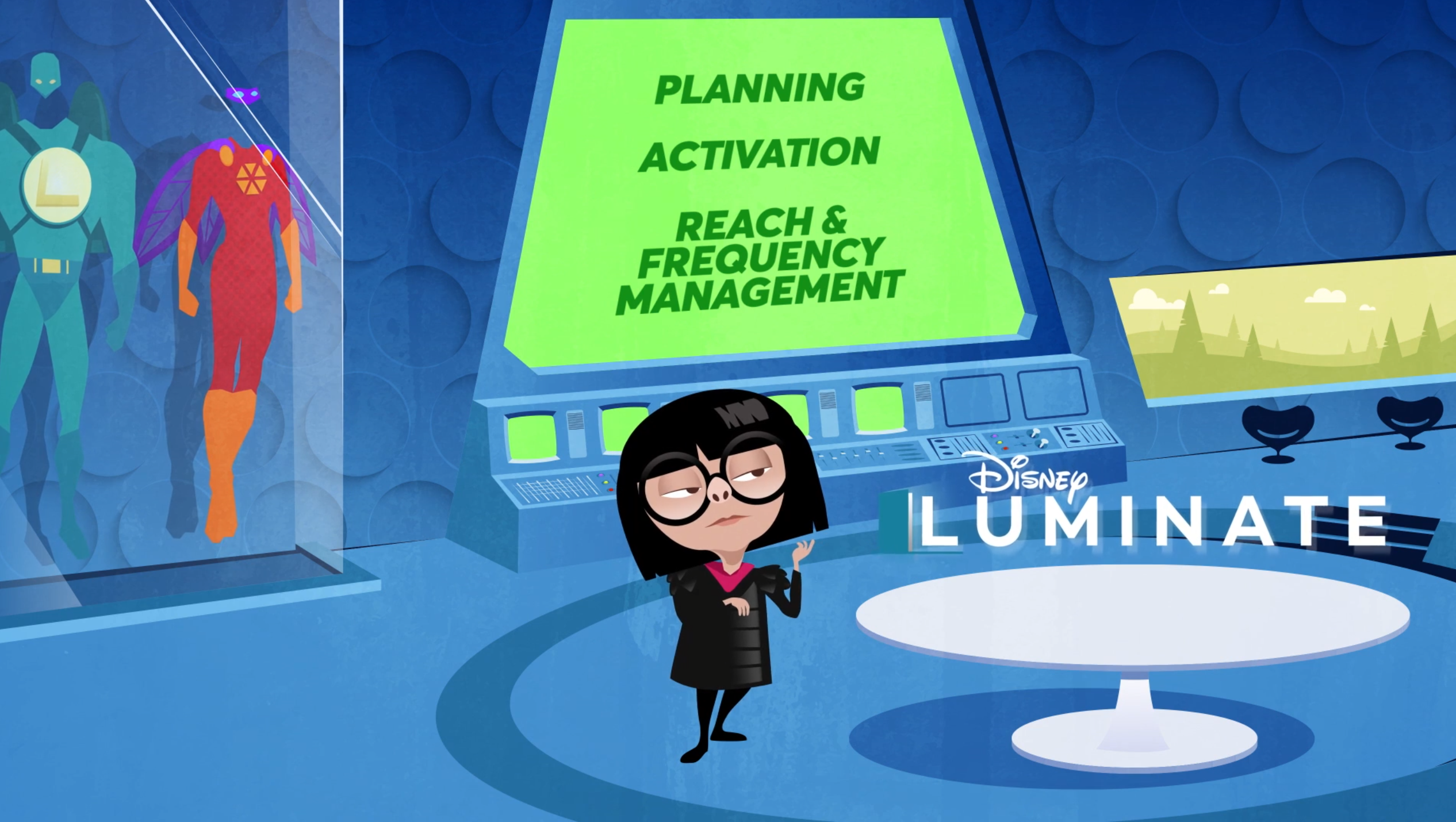WYSK: 07/08/22
This Week: 0. One Good Thing; 1. Hope-filled Parenting; 2. Disney AdTech; 3. Insurance Data; 4. More-Profit Universities

What you should know from the week of 07/08/22:
One Good Thing:

“Mathematicians are a lot like artists in that really we’re looking for beauty,” said Federico Ardila-Mantilla, a mathematician at San Francisco State University and one of Huh’s collaborators. “But I think in his case, it’s really pronounced. And I just really like his taste. He makes beautiful things.”
A very pleasant article this week about one of the Fields Medal winners, June Huh.
He has an atypical path to math, and his accomplishments there are remarkable. But I love the discussion of how "he makes beautiful things," and his personal growth in developing beyond a fundamentally self-centered lifestyle (even one that uniquely promoted his self-actualization).
But, she added, Huh has improved drastically since then. As the couple raised Dan, “I learned how to live a more balanced life,” Huh said. “That was a transformative period.” He spends a lot of time with Dan — drawing with him, solving problems in intricate math workbooks that Dan creates for him, and taking him to the bookstore and other local spots. He even takes care of the logistical tasks that Kim asks him to do, albeit begrudgingly. “I still don’t like it,” he said, “but I mean, we cannot just live with stapled blankets.”
...“He’s a totally different person,” Kim said.
Hope-filled Parenting:

Research shows that hopefulness can dramatically reduce childhood anxiety and depression. Hopeful kids have an inner sense of control. They view challenges and obstacles as temporary and able to be overcome, so they are more likely to thrive and help others.
Yet despite its immense power, hope is largely excluded from our parenting agendas. The good news? Hope is teachable. One of the best ways to increase this strength is by equipping children with skills to handle life’s inevitable bumps.
An interesting article from Michele Borba in CNBC where she shares 9 practical actions to teach hope to children:
- Stop negativity in the moment.
- Use hopeful mantras.
- Teach brainstorming.
- Share hopeful news.
- Ask ‘what if?’
- Celebrate small gains.
- Boost assertiveness.
- Create gratitude rituals.
- Embrace service.
A necessary focus on hope, especially during a time when there is a constant weight of bad news churning out, and where it often feels irresponsible to not be 'fully informed' (as byproduct of the wash of mis/disinformation, it is easy to feel an undue burden to be informed in order to be able to combat pervasive and society-shaping lies).
Disney AdTech:

Joseph Cox reports on Disney's suite of advertising products, based on an (evidently leaked) assortment of internal Disney videos:
The videos show that Disney...sees itself as a serious player in the world of ad tech... Some of the videos, created for an internal audience of sales employees at Disney, explain all of this through the words of some of the company’s most popular franchises, including The Incredibles, Star Wars, and more.
In another video, Baymax from Disney’s Big Hero 6 explains...“Hulu mined the data on how viewers watch, and then pioneered non-disruptive ad formats, with pause and binge ads that respond to viewer behaviors and create a relevant ad experience,” they continue. They add that ESPN introduced new shorter and skippable ad formats that “meet the needs of today’s viewers” which encourage “increased audience consumption.”
Three things struck me about this story. First, it is adding to a gradual and relentless fracturing of shared experience. Second, it is a disturbing exploitation of trust. Third, it exposes the goal of all ad-based systems.
Fracturing Experience
While it is nearly axiomatic today that a 'customized experience' is a good thing, we have already left the golden age of customization and are hurtling farther and farther into a kind of customization that silos people and insulates them from each other. We are on the brink of real-time customized product placement in entertainment, and people will soon be watching the 'same' movie or show but with actually different product placement in the shows based on their interests (e.g. you might see a character drinking pepsi while I see them drinking coke). While this seems trivial, I think it is part of a broad push that is quite bad.
The more customized individual experiences are, the less easy communing with each other becomes. If I live in a world tailored uniquely and exactly to my tastes, I will find it at least slightly jarring when I have to be confronted with your world tailored uniquely and exactly to your differing tastes. Of course people should have different tastes and tendencies; but when consistent experience trains people that they ought and deserve to live in a world that conforms to their interests, people will respond with natural hostility when they are forced into contact with someone else's world.
Exploiting Trust
Disney has been a de-facto nanny to a huge portion of American children, teaching principles like empathy, courage, hope, and a slew of other virtues. Regular moral panics over Disney content showcase the American expectation that Disney does and should be shaping our children.
It is human to desire to share your views and beliefs with other people, and Disney treats their audience as people by trying to share values with them (regardless if you or I agree with the values there is shared humanity here).
While both story and advertising are intended to be persuasive, the focus on advertising forces a shift where the audience becomes a resource from which value should be extracted, rather than a person.
Merriam-Webster defines the verb "exploit" in two ways: when applied to a resource it means "to make productive use of," but when applied to a person it means "to make use of meanly or unfairly for one's own advantage."
When treating people as resources, Disney exploits people and abuses their trust.
Increasing Consumption
As one of the block quotes above notes, Disney lauds ad solutions that "increas[e] audience consumption." All ad-funded organizations have this as their ultimate goal, although they usually try to hide it.
Rather than enabling quality content, new insights, or valuable art, ad-based revenue models always devolve into a trans-fat rich slurry of craving-inducing content that prioritizes addiction rather than quality.
Insurance Data:

An important article from Isabelle Bousquette in WSJ:
Health insurers like Cigna Corp. and UnitedHealthcare say they are exploring the idea of targeted medical interventions. Applying data analytics or AI algorithms to data from claims documents, electronic medical records and other sources of information, they are able to determine when a member might be at risk for a particular condition or further complications of an existing condition, the companies said.
This sort of development is usually billed as exciting and beneficial. But such predictive technology is routinely riddled with bias resulting from a combination of bad data being fed into the models, and model-designers who are primarily technical (lacking the necessary literacy in history and soft sciences to understand the impacts of their design choices) and have their own profit-driven biases they endow upon their models.
More-Profit Universities:

Another WSJ article, this time from Lisa Bannon and Rebecca Smith.
American universities are searching for ways to generate more revenue. As a result, hundreds of schools—including Vanderbilt University, the University of California, Berkeley, and the University of North Carolina at Chapel Hill—are teaming up with for-profit companies such as 2U to provide online programs.
As part of the arrangement, one that is reshaping higher education, #universities sometimes hand over to companies a great deal of control of student recruitment and instructional design, especially for nondegree programs. For their work, the companies receive hefty shares of tuition dollars.
The article walks through how universities outsource educational offerings to third-party companies, while concealing the provenance of the courses to prospective students.
Two things:
First, the schools infantilize their students. A position that conflicts with the supposed belief of a university that their students are intellectually-vital and capable of advanced thought and able to handle nuance:
USC said: “It is common for these types of contractors to use school email addresses so they do not confuse prospective students.” USC paid 2U at least $398 million between 2013 and 2020, according to a Journal analysis of federal tax filings in which nonprofits disclose their largest contractors.
Second, this approach—of multiple schools farming out educational programs to a third party that in turn regurgitates them to other universities—should be antithetical to a society that values diversity of thought and expertise.
We have to revamp our educational system in the US. Funding our public schools properly would be a good start.
Interest piqued? Disagree? Reach out to me at TwelveTablesBlog [at] protonmail.com with your thoughts.
Photo by Tamara Gak on Unsplash


